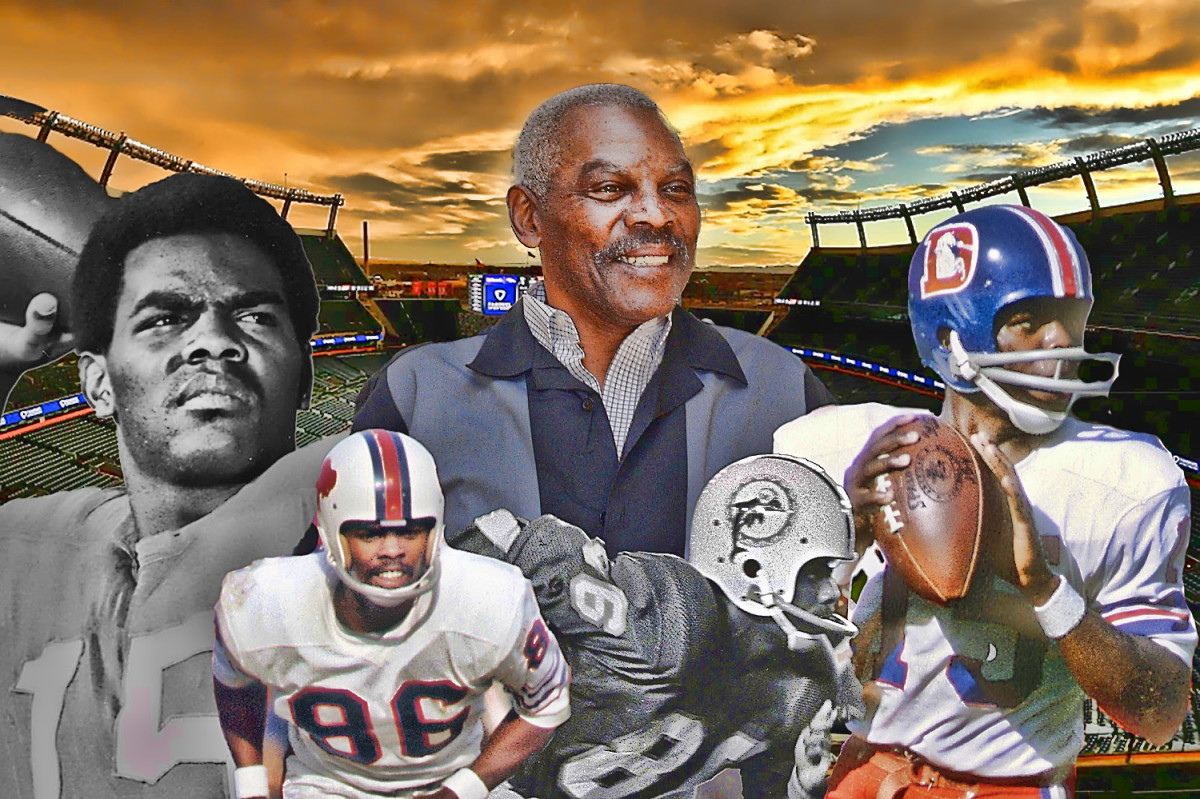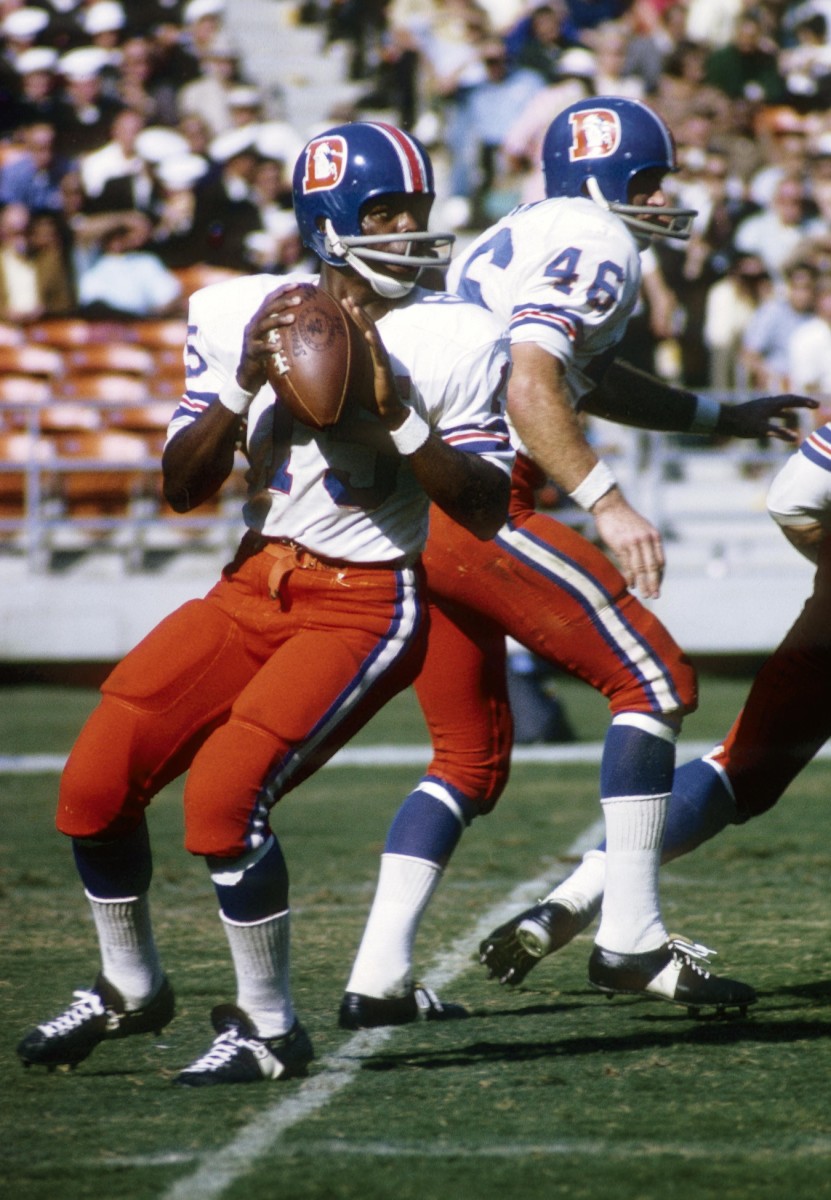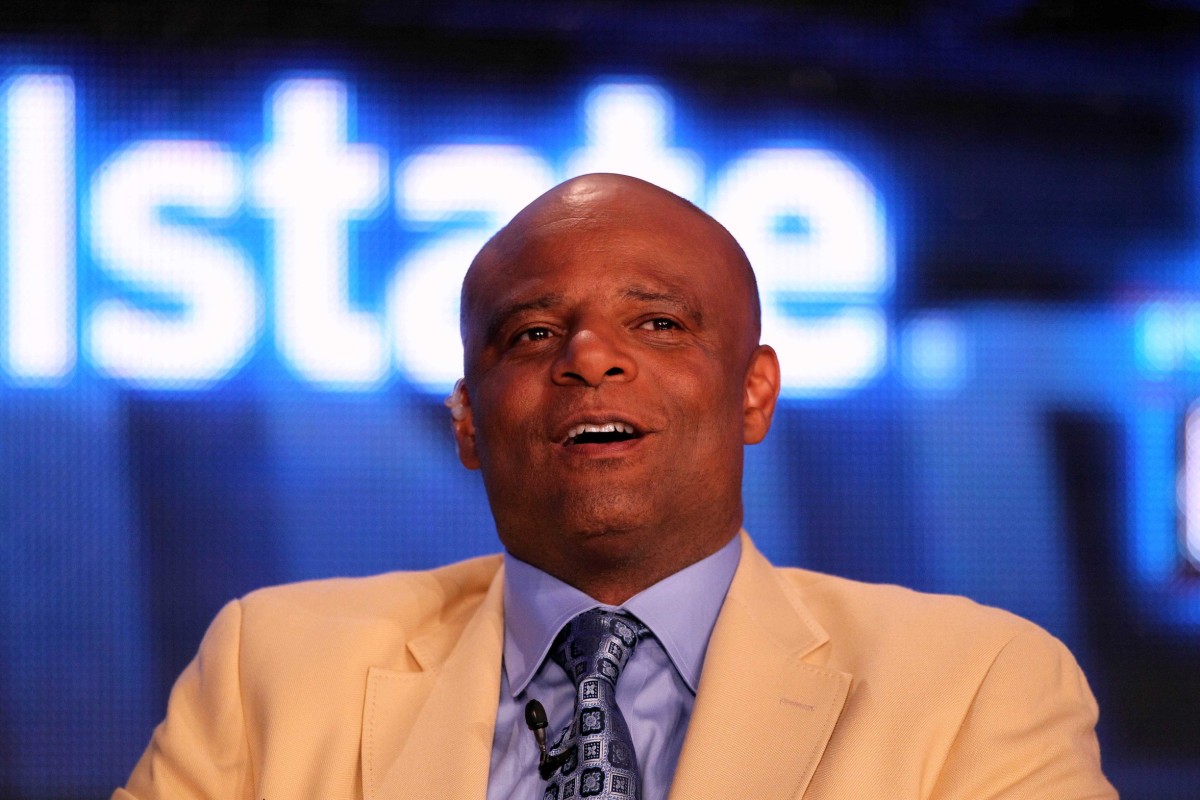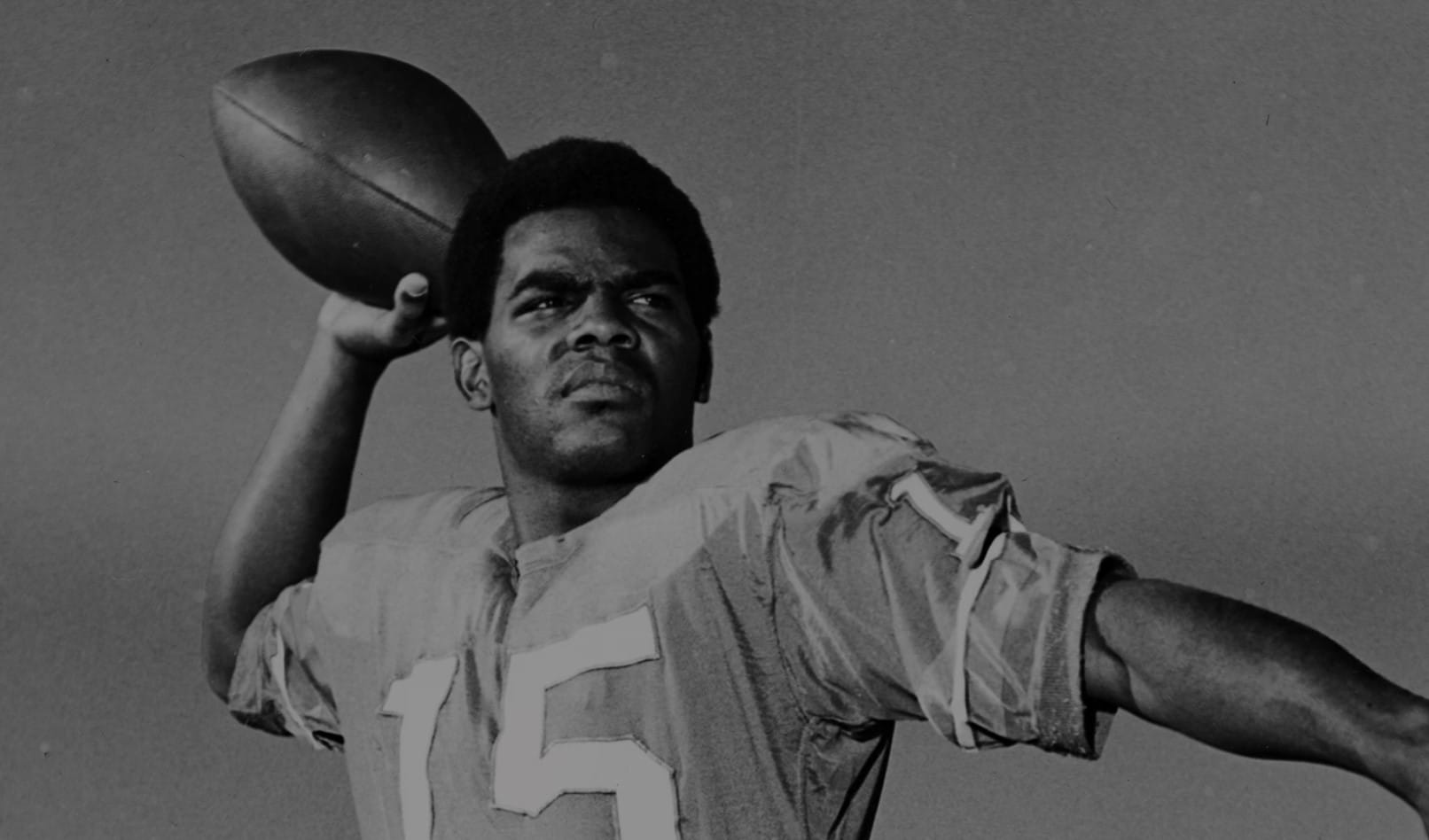Marlin Briscoe: A Trailblazer For Today's Black Quarterback, HBCU Football Players
Marlin Briscoe may not have been from an HBCU, but black sports enthusiasts across America applauded his ascension to become the first black starting quarterback in the NFL. The days of discrimination as a youth in Oklahoma didn't deter Briscoe from following in the footsteps of his idol, Johnny Unitas. Although he brought "savvy" to his high school team, the young athlete was a star on offense and defense for his team.
"You just know how it is because you're black," Briscoe told the AP's Mike Rathet. "But I never let it worry me. There are good people and bad. My way is to show people what I am by performance. In essence, that's what it's all about."

DAYS AT OMAHA UNIVERSITY
Langston University is the only HBCU located in Oklahoma. It's not clear if the institution offered Briscoe a scholarship, but Omaha University did. It's coach, Al Caniglia, gave Marlin the opportunity at an education and a chance to play quarterback.
After his freshman season, Briscoe became Omaha's leader at quarterback. He finished his collegiate career by setting many school records and being recognized as an All-American talent ready for his next role as "The Magician" in the NFL.
THE 1968 AFL & NFL DRAFTS
Tennessee State's Eldridge Dickey was the 25th pick in the first round of the 1968 AFL Draft. Omaha's Marlin Briscoe became the 357th pick in the fourteenth round of the 1968 NFL Draft. Dickey was the first black quarterback selected in the first round. Still, scouts considered Briscoe a prospect at cornerback or wide receiver. A year later, Buffalo would draft James "Shack" Harris in the 8th round (192nd overall) of the 1969 NFL Draft.
The star QBs — Briscoe and Dickey — lives would have strange twists and contrasts to their NFL careers. In the end, Dickey's talent and potential never flashed during an NFL regular season contest. Although, Briscoe would eventually become the pioneer that Dickey once was thought to be for professional football.

"When James Harris, when Marlin Briscoe and Joe Gilliam took the snap from center, it was like all of Black America was taking that snap," journalist Roy S. Johnson told William C. Rhoden in Third and a Mile. "When they completed a pass, it was as if all of Black America was completing that pass. When they fumbled, it was if all African-Americans were fumbling that ball. They carried that burden with them, just as many other pioneers did."
BRISCOE RECALLS GETTING THE OPPORTUNITY
I recalled Briscoe's interview with the Pro Football Hall of Fame I recorded in February 2022. Briscoe said, "So I told you representative at Denver, I'll play playing corner, but you have to give me a three-day trial at quarterback." He resumed, "They thought I was crazy. How are you, a 14-round draft choice, dictate how we will place you out on the field?"
Briscoe responded to the Broncos, "I said, well, that's all I wanted to do was to play quarterback. I'll take the trial at corner but have to have that three-day out. All I wanted to do is to showcase my skills. I was very confident in what I did."
The first Black starting QB in American pro football history. 👏
— Denver Broncos (@Broncos) June 27, 2022
The Making of the Magician: Marlin Briscoe’s pioneering path » https://t.co/lrVZGcrluBpic.twitter.com/giSOkxhNcl
His confidence won him an opportunity, and "they acquiesced to my demands, so to speak." Ever so "The Magician," Briscoe found a rabbit up his sleeve when an injury to the starting quarterback Steve Tensi forced the coach Lou Saban, Nick Saban's father, to play him as Denver's quarterback in a game. After engineering a couple of scoring drives, Saban named Marlin Briscoe the starter the following week.
The young man from South Omaha became modern-day professional football's first black starting quarterback.
PIONEER AND TRAILBLAZER
Briscoe said of the significance of becoming Denver's starter, "It was beyond just football. It was a happening, an opportunity for blacks in all of the world." He continued, "The black quarterback position wasn't something that is like being the President of the United States, and CEO of a major corporation. It's very rare...I was ordained, so to speak, to break that barrier."

The first black quarterback enshrined into the Pro Football Hall of Fame, Warren Moon, permitted me to re-scribe his words.
"Today is a sad day for me. One of my idols growing up, Marlin Briscoe, passed away. He was one of a few Black QBs of the late 60s that gave me the inspiration that one day I could play QB as a professional. Marlin was the 1st Black QB to start in the AFL. He started five games his rookie year and was runner-up for Rookie of the Year in 1968.
We became very close friends during my career, and we worked at some QB clinics together. He will be missed! My thoughts and prayers go out to Marlin and his family. RIP Marlin."







RACISM'S UGLY TRUTH FOR THE BLACK QUARTERBACK
After his rookie campaign in Denver, he landed in Buffalo with James "Shack" Harris, who later became the first black quarterback to start a season for the Los Angeles Rams. Journalist Alan Pergament detailed the racism and humiliation the pioneering teammates endured in Buffalo. Eventually, both found new teams in the NFL.
Briscoe headed for South Beach with the future Super Bowl Champions, the Miami Dolphins. Forever the team player, he switched to wide receiver and became an All-Pro. He earned two Super Bowls (VII and VIII) with the Dolphins and a Pro Bowl honor.
HE PAVED THE WAY
Through the decades, Briscoe's steadfastness and confidence would inspire black quarterbacks like James "Shack" Harris, Doug Williams, Joe Gilliam, Warren Moon, Steve McNair, Donavan McNabb, Russell Wilson, Lamar Jackson, Jameis Winston, and Patrick Mahomes.
Today's young HBCU quarterbacks such as Aqeel Glass, Felix Harper, Juwan Pass, Corey Fields Jr., and Andrew Body owe their opportunities to Marlin Briscoe who paved the way.
It reminds me that these men and others stand tall on the shoulders of legends like Marlin Briscoe. He may not be an HBCU legend, but his commitment and passion for the game his loved models well for future generations of athletes to follow.
Marlin Briscoe died in Norwalk, California on June 27, 2022 at the age of 76.
